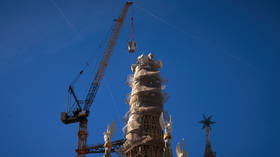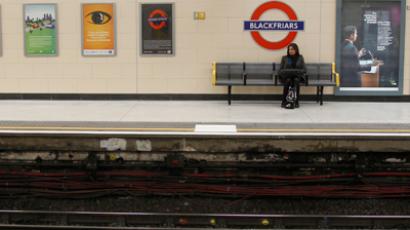Olympics turn London into "ghost town"
Londoners are working from home to avoid traffic chaos. While it makes traveling easy, retailers are panicking that the British capital is turning into a "ghost town", as RT's Andrew Farmer reports.
The London Olympics, which many of the capital's businesses hoped would bring a much-needed boost, has left many lagging behind.Not just because of a lower-than-expected turnout of tourists coming to the city – but also because London's workers are staying at home. Around one and a half million people – almost a third of the city's workforce – are staying away from the city to avoid traffic chaos in the middle of London. This is affecting traders like Emre Akyilmaz, who runs a sandwitch shop. He and other traders say key parts of London have turned into ‘ghost towns’, as those who would normally pop out for lunch or have an after-work drink stay away. " During the Olympics we thought we would be really busy but actually it's gone down to 25 percent. We don't see enough tourists around ," says Emre Akyilmaz. "They are all starying around Stratford and a lot of people have been working from home. It really affeted us. I had to get rid of one of my staff because it's not that busy. We hope the Olympics finish by next week and we'll get back to normal," Emre said. It's not only the small and medium-sized enterprises that are getting hit. July saw British manufacturing suffer its worst month for more than three years, as the deepening, double-dip recession showed no sign of easing. It also fuelled fears that the Olympics are having a wider adverse effect on the economy, as business is disrupted and factories shut down. However, Olympic games are not entirely bad news with over $10 billion worth of contracts generated by these games. But just like the Olympics and sports itself it appears that winners and losers have been created in the economy.













